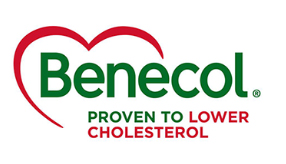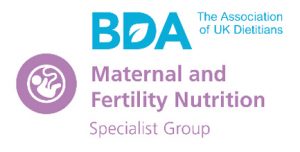£40
5 hours
Women’s Health Across The Lifespan
Thursday 30 March 2023, 10:00 – 16:00 GMT
5 hours
Women’s Health Across The Lifespan
Thursday 30 March 2023, 10:00 – 16:00 GMT
5 hours
£40
5 hours
OPEN TO ALL HEALTH PROFESSIONALS, TUTORS AND STUDENTS
Women* are under-represented in research meaning that not enough is known about how conditions and female-specific health issues affect women. It has become clear that not enough focus has been placed on important women’s health issues such as miscarriage or menopause. This full day masterclass will feature leading experts covering the latest research and recommendations for women’s health across the lifespan, from adolescence to menopause.
Women in the UK live longer than men on average however, they also spend a significantly greater proportion of their lives in ill health and disability compared to men. In August 2022, the UK Government published the first ever Women’s Health Strategy for England, which aims to address the many disparities in women’s health across the country.
In this symposium, we’ll focus in on women’s health across the lifespan covering important areas and conditions often neglected in healthcare discussions.
Presentations will cover:
- Adolescent health
- Nutritional interventions in endometriosis
- Eating disorders in the perinatal period
- The transition to menopause
- Pregnancy after bariatric surgery
- Cardiovascular disease in women
- Government strategies on nutrition
This masterclass costs just £40 for the full day + a live virtual networking session on Friday 31 March. It has been designed for all professionals with an interest in women’s health – in particular, dietitians, nutritionists, health visitors, midwives, GPs, practice nurses, community pharmacists, tutors and students. A 50% student discount is available and we are now taking group bookings of up to 10 attendees. See frequently asked questions for more details.
All registrants will also be invited to join a virtual networking session from 10-10:30 on Friday 31 March 2023. During this networking session, you’ll have the opportunity to meet and share learnings with fellow healthcare professionals, students and tutors from across the world.
*The terms woman/women will be used throughout this symposium, however the content may also apply to those assigned female at birth but holding a different gender identity (non-binary or transgender). It is important to ensure that the terms used in practice are personalised to individual patients.
CHAIRS:
• Dr Angela Flynn Lecturer in Nutritional Sciences, Department of Nutritional Sciences, King’s College London
• Dr Sara White Clinician Scientist and Maternal Diabetes Clinical Research Lead, Department of Women and Children’s Health, King’s College London
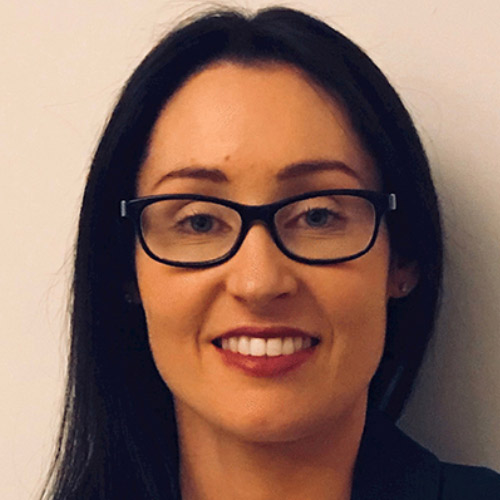
Chairs introduction
Dr Angela Flynn
Lecturer in Nutritional Sciences, Department of Nutritional Sciences, King’s College London
Dr Angela Flynn’s biography
Dr Flynn is a Lecturer in Maternal Health and Nutrition in the Department of Nutritional Sciences at King’s College London. Her research focuses on improving outcomes for women before, and during pregnancy, particularly higher risk women such as those living with obesity or at risk of developing gestational diabetes. Other interests include examining the relationship between maternal micronutrient status and pregnancy outcomes.

Dr Sara White
Clinician Scientist and Maternal Diabetes Clinical Research Lead, Department of Women and Children’s Health, King’s College London and Honorary Consultant in Metabolic Medicine (Clinical Biochemistry), Guy’s and St Thomas’ NHS Foundation Trust
Dr Sara White’s biography
Dr Sara White is a Metabolic Physician with clinical expertise in diabetes in pregnancy. During her PhD she investigated early pregnancy gestational diabetes (GDM) prediction and metabolic profiles amongst obese women with GDM. Her research explores GDM pathophysiology and stratification of potential subtypes, plus ways to improve outcomes in at-risk women.

Government Strategies on Nutrition in Pregnancy
Professor Lucilla Poston CBE
Tommy’s Professor of Maternal and Fetal Health
Head of School of Life Course and Population Sciences, King’s College London
Professor Lucilla Poston’s biography
Professor Lucilla Poston is Head of School of Life Course and Population Sciences at Kings College London (KCL). She holds the Tommy’s Charity Chair of Maternal and Fetal Health. A graduate in Physiology (University College London) with a PhD in the field of medicine, she directs a multidisciplinary team of scientists and health professionals which she established in 1995, located within Guy’s and St. Thomas’ NHS Foundation Trust, London. Professor Poston is a Fellow ad eundem of the Royal College of Obstetricians and Gynaecologists (RCOG), a National Institute of Health Research (NIHR) Senior Investigator (emeritus) and a Fellow of the Academy of Medical Sciences, UK. She is a member of the UK Government’s Scientific Advisory Committee on Nutrition (SACN), a Member of the UK Medical Research Council’s Global Health Board and President of the International Society for the Developmental Origins of Health and Disease. In 2017, Professor Poston was honoured by Her Majesty the Queen as a CBE (Commander of the British Empire) for her services to Women’s Health.
Session outlines and learning objectives
National guidelines and strategic objectives for nutrition in pregnancy and in disorders of pregnancy are often inconsistent from country to country. Standardisation, focussing on evidence-based information, should be pursued. We should also advocate the potential benefit for pregnancy of public health nutrition strategies in the general population. This presentation will cover the inconsistencies in national advice given during pregnancy and how interventions at a government level can benefit outcomes.
Watch this session to:
GAIN CLEAR UNDERSTANDING OF:
- Globally inconsistent national advice for nutrition in pregnancy.
- Population based government interventions may also benefit pregnancy outcome.
BE AWARE OF:
- Differing nutritional status and nutritional needs in different countries.
- Difficulties inherent to changing government recommendations.
BE ABLE TO:
- Advocate evidence-based advice on nutrition in pregnancy to policy makers.
- Appreciate the potential benefits for pregnant women of nutritional advice for the general public.

Engaging adolescents in changing their behaviour
Professor Mary Barker
Professor of Psychology and Behavioural Science, School of Health Sciences, University of Southampton
Professor Mary Barker’s biography
Mary Barker is Professor of Psychology and Behavioural Science, University of Southampton UK. She has a joint appointment in both the Faculty of Medicine and the School of Health Sciences, Faculty of Environmental and Life Sciences, University of Southampton UK. Mary’s work in the UK and in low-income countries uses participatory methods to engage diverse young people in improving their sense of agency and well-being, to benefit their health and mental health.
Session outlines and learning objectives
Adolescents have the poorest diets of any population group in the UK. Levels of physical activity drop off during this phase of life and young people begin to experiment with smoking, drugs and alcohol. As citizens and parents of tomorrow, investing in adolescent health has the potential for improvements in the health of the UK population for generations to come. Yet adolescent health has been neglected as a focus for clinical services and public health intervention. This presentation will explore why this might be and offer some suggestions for how we can remedy this situation.
Watch this session to:
GAIN CLEAR UNDERSTANDING OF:
- Issues with adolescent health
- Why young people might not engage with services
- What we might need to do engage them
BE AWARE OF:
- The importance of investment in adolescent health
- What this particular lifestage might be important for in terms of development
- What methods might work best in engaging young people
BE ABLE TO:
- Use an understanding of young people’s values to inform practice
- Appreciate what is required to engage young people in looking after their health
- Identify the main issues for healthy development of young people

Nutritional interventions in endometriosis
Dr Kate Maslin
Senior Research Fellow in Maternal and Child Health
School of Nursing and Midwifery, University of Plymouth
Dr Kate Maslin's biography
Dr Kate Maslin’s research focuses on nutrition during preconception and pregnancy in women with medical conditions. She is the topic expert for the NICE guidelines on maternal and child nutrition and research officer for the BDA maternal and fertility nutrition specialist group. Prior to completing her PhD, she worked for several years as a paediatric dietitian.
Session outlines and learning objectives
Endometriosis is a chronic condition causing pelvic pain, fatigue, infertility and gut symptoms. Research suggests that dietary changes may improve symptoms, however clear evidence is lacking. This presentation will cover the basics of endometriosis and how nutrition can play a role in reducing symptoms.
Watch this session to:
GAIN CLEAR UNDERSTANDING OF:
- The basics of endometriosis – what it is and how it can affect health.
- How endometriosis is managed and how nutrition could play a part in reducing symptoms.
BE AWARE OF:
- The link between endometriosis and Irritable Bowel Syndrome.
- The difficulties people encounter accessing healthcare for endometriosis.
- The limitations of research about nutrition and endometriosis.
BE ABLE TO:
- Weigh up the potential role for dietary interventions to improve endometriosis symptoms.
- Support those with endometriosis to make informed choices about nutrition.

Eating Disorders in the Perinatal Period: Implications for Pregnancy and Birth
Dr Abigail Easter
Senior Lecturer in Maternal and Newborn Health
Department of Women and Children’s Health, School of Life Course Science, at King’s College London
Dr Abigail Easter’s biography
Dr Abigail Easter is a Senior Lecturer at King’s College London and Deputy Lead for the Maternity and Perinatal Mental Health research theme of the NIHR Applied Research Collaboration (ARC) South London. Dr Easter completed her PhD in maternal eating disorders, and the effects on pregnancy, birth, and motherhood. Her current research focuses on maternal morbidity and mortality among women experiencing mental health problems and bridging the gap between maternity and mental healthcare services to inform care of women with multi-morbidity.
Session outlines and learning objectives
Approximately 2-5% of women experience an eating disorder during pregnancy. This can have implications for both their physical and mental health during the perinatal period. This talk will help understand the impact of eating disorders during the perinatal period, and how best to identify and support women at this time.
Watch this session to:
GAIN CLEAR UNDERSTANDING OF:
- How eating disorders are defined.
- The implications of having an eating disorder for pregnancy and birth.
- The types of treatments and interventions available to women.
BE AWARE OF:
- The number of women affected by eating disorders in pregnancy.
- The support needs of women with eating disorders during pregnancy.
- Nutritional advice for women with eating disorders in pregnancy.
BE ABLE TO:
- Describe the different types of eating disorders.
- Assess how eating disorder affect pregnancy, childbirth and motherhood.
- Consider ways to provide support and guidance to women with eating disorders in pregnancy.
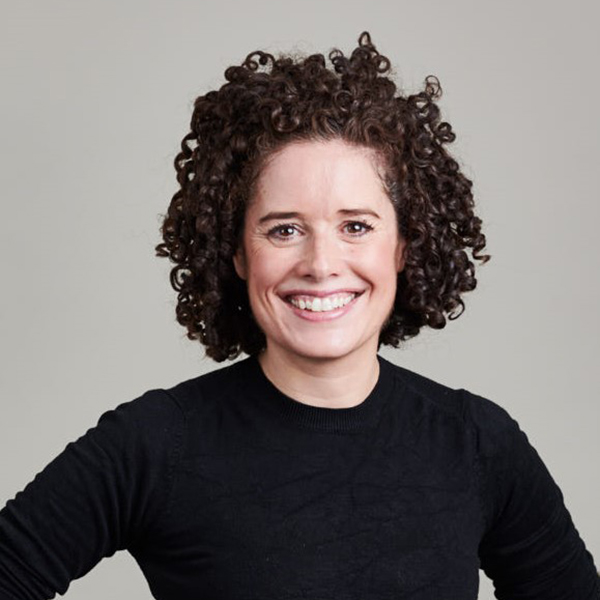
The Menopause Transition
Dr Sarah Berry
Reader in Nutritional Sciences, King’s College London
Dr Sarah Berry’s biography
Sarah Berry is a Reader in Nutritional Sciences at King’s College London and Chief Scientist at ZOE Ltd. Her research is at the forefront of developments in personalised nutrition and is forging a new way forward in the design and implementation of large-scale remote nutrition research studies integrating novel technologies, citizen science and AI.
Session outlines and learning objectives
The menopause transition period is a time of huge physiological upheaval resulting in burdensome symptoms and increased risk of chronic disease. Post-menopausal women have higher blood pressure, adiposity, blood cholesterol and glucose versus pre-menopausal woman.
Watch this session to:
GAIN CLEAR UNDERSTANDING OF:
- The change in cardiometabolic disease risk associated with menopause.
- The prevalence of peri- menopausal symptoms and associations with diet.
- The potential to change what we eat and how we eat it to modulate disease risk.
BE AWARE OF:
- The biological changes that occur during the menopause transition.
- The intersection of diet and lifestyle in the menopause transition.
- The post-meal responses in peri- and post- menopausal women and how they relate to disease risk.
BE ABLE TO:
- Translate dietary advice to peri- and post- menopausal women.
- Understand key disease risk factors which are elevated in post-menopausal women to provide targeted dietary and lifestyle advice.
- Evaluate the benefits of hormone replacement therapy (HRT) for peri- and post- menopausal women.
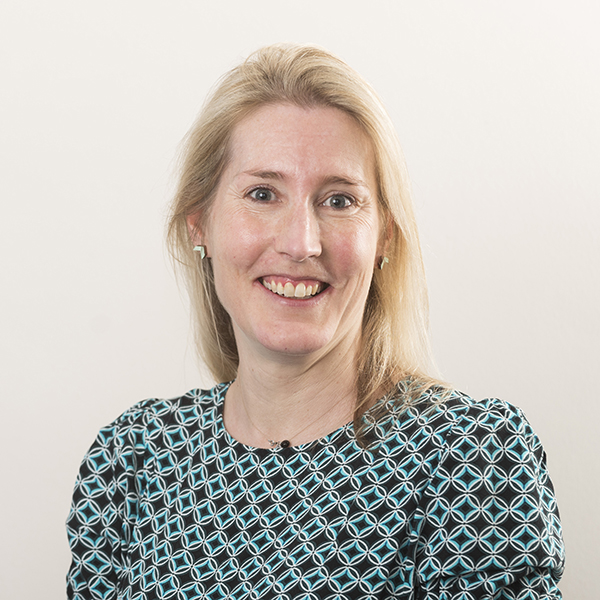
Pregnancy after bariatric surgery – what do we know and what should we do?
Dr Kathryn Hart
Senior Lecturer in Nutrition & Dietetics, Faculty of Health and Medical Sciences, University of Surrey
Dr Kathryn Hart’s biography
Dr Hart is a Registered Dietitian and Senior Lecturer at the University of Surrey. Her teaching and research focus on nutrition in early life and, most recently, she has been involved in a prospective study of reproductive health after metabolic surgery (RHAMS) in conjunction with St Richard’s Hospital in Chichester.
Session outlines and learning objectives
Increasingly bariatric surgery is being performed in women of reproductive age, creating a new population of women and their offspring who may benefit from specialist clinical care. Whilst some risks (associated with pregnancy complicated by obesity) are reduced after surgery other risks may emerge, including those related to nutritional inadequacy. Whist guidance for management of pregnancy does exist the evidence base is limited. This session will summarise what we know about the impact of surgery on fertility and pregnancy and optimal management of post-surgical pregnancies.
Watch this session to:
GAIN CLEAR UNDERSTANDING OF:
- Population characteristics of those undergoing bariatric surgery.
- Impact of surgery on implied and demonstrated fertility.
- At risk nutrients in post-surgical pregnancy.
BE AWARE OF:
- Limitations of the existing evidence base for management of post-surgical reproductive function.
- Potential surgery-related risks for future pregnancies.
BE ABLE TO:
- Describe current best practice for monitoring and managing pregnancy post-bariatric surgery.

Atherosclerosis: not just a man’s disease
Dr Wendy Hall
Reader of Nutritional Sciences, Department of Nutritional Sciences, School of Life Course and Population Sciences, King’s College London
Dr Wendy Hall’s biography
Dr Wendy Hall (RNutr) completed her PhD (2001) at the University of Surrey where she stayed for another 2 years as a researcher. Following 3 years as a postdoctoral researcher at University of Reading, including investigating cardiometabolic effects of soy isoflavones in postmenopausal women, Wendy was appointed to an academic post at King’s College London. Wendy’s research involves diet and lifestyle interventions and their impact on risk factors for cardiovascular disease and type 2 diabetes. She is the Nutrition Society Theme Leader for Nutrition and Optimum Life-course.
Session outlines and learning objectives
More than 3.5 million women in the UK are living with heart disease, and increasingly it is recognised that cardiovascular diseases are not just a major health concern for men. In fact, it kills more than twice as many women as breast cancer. The relative impact of some risk factors may differ between sexes, and other risk factors are specific to women. This talk will address these issues and take a critical look at dietary approaches for prevention of cardiovascular disease in women.
Watch this session to:
GAIN CLEAR UNDERSTANDING OF:
- The prevalence and risk factors for cardiovascular disease in women.
- Female-specific aspects of heart disease.
- The role of menopause in increasing risk factors for heart disease.
BE AWARE OF:
- Gender inequalities in the healthcare system when it comes to diagnosis and treatment.
- The latest consensus on HRT and cardiovascular disease.
BE ABLE TO:
- Critically discuss dietary approaches to prevention and management of atherosclerotic cardiovascular diseases in women will be outlined.
FAQs
1. I am unable to attend the live symposium, can I still access the material?
Yes, if you have registered and paid for the symposium in advance of the event date but cannot attend you will receive a unique link and access code to view the recording of the full symposium and individual sessions via email after the event. Please do allow up to a week for the recordings to be processed and check your junk/spam folders before contacting us.
2. Can I register for the event after the event has taken place?
Yes. Access to the recording of the full symposium and individual sessions will be available to purchase after the event has taken place. After you have registered and paid your access fee, you will be sent a unique link and access code to view the recording of the full symposium and individual sessions via email. You will be able to register for the full session for £40 or individual sessions for £10 each. Please allow up to a week for registrations to be processed and check your junk/spam folders before contacting us.
3. I registered but haven’t received a confirmation email.
Please check your spam/junk folders. If you can’t find the email, contact hello@mynutriweb.com with your full name and payment receipt.
4. Why is this event not free, when others usually are?
The symposium is priced at £40 for the full event to enable us to cover some of the running costs and continue to provide you with the highest quality e-learning, whilst ensuring that it is still accessible. A portion of the registration fee will go to the Department of Women and Children’s Health at King’s College London.
Included in the registration fee you will gain access to 5 hours of CPD with leading experts in women’s health and nutrition and the opportunity to join a virtual networking session after the event. After the live event, you will also receive speaker presentations, on-demand access to the full symposium and individual sessions to refer back to for at least 12 months, and your personalised CPD certificate for your records. A student discount is available (see separate question).
5. I'm a student, can I get a discount?
Yes, we are offering a student discount of 50% (£20). To receive your discount code, before registering please email hello@mynutriweb.com with your full name and a photo of your student ID.
6. Do I have to attend all the symposium sessions?
Registration to the symposium gives you access to the live event and individual session recordings after the event. You can use the same access link to join the live event at intervals throughout the day and will still have access to the full event recording and any sessions you missed live after the event. Your CPD certificate from the live event will reflect the total time you joined for.
7. Do I get a CPD certificate?
Yes, personalised CPD certificates will be emailed to attendees within seven days of watching. Each certificate is personalised to include the total length of time you attended the live symposium. If you watch individual sessions on demand, you will receive an individual certificate for each. Please note, if you attend the event for less than 30 minutes you won’t qualify for a CPD certificate.
8. What if I need to cancel?
If you can no longer attend the session, you will be able to access the recordings of the session on-demand for up to 12 months after the live event. However, if you wish to cancel your registration entirely, please contact us in writing by emailing hello@mynutriweb.com by midnight BST 22 March 2023 for a partial refund of £36 (full price of the symposium excluding £4 processing costs). Cancellations received after the stated deadline will not be eligible for a refund. All refund requests must be made by the attendee or credit card holder. Refund requests must include the name of the attendee and the email address used to register. Refunds will be credited back to the original credit card used for payment, please allow 10 working days.
9. My company/university is paying for my attendance, can they pay via purchase order/invoice?
MyNutriWeb doesn’t have the facilities to accept purchase orders or issue invoices at this time. A payment link can be sent to your purchasing department for payment directly on your behalf, alternatively, we can issue a receipt of payment to you to claim your payment back.
10. Do you accept group bookings?
Group bookings of up to 10 attendees are accepted. Please email hello@mynutriweb.com to request a group booking form. Once the booking form has been returned, we will issue a payment link for the full cost of the booking. Please allow 10 working days for the booking to be processed after payment has been received. If you wish to watch the event live, please submit group booking requests by 15th March 2023. Requests made after this date may not be completed before the live symposium on 30th March.
11. Can I watch the webinar on the same link as my colleague(s)?
Registration links are unique to each attendee, so watching on a colleague’s link means you won’t be registered as attending the event, which will result in you not receiving the slides and certificate of attendance. A group booking will enable you to watch together and still receive your slides and certificate.
CPD CERTIFICATE & LEARNING MATERIALS
This symposium is approved for CPD by the BDA and AfN
You are welcome to attend individual sessions. CPD certificates will be issued based on length of total time attended.
Women’s health has received greater publicity in the last year, which has resulted in more people seeking advice and support in this area. Therefore this masterclass will support those who are practicing in this field.
Webinar slides and links to other key resources will be sent within a week of viewing the live webinar, along with a separate personalised CPD certificate to save for your files. Add hello@mynutriweb.com to your safe senders to ensure you receive them.
This webinar is being run in association with the Department of Women and Children’s Health and Nutritional Sciences at Kings College London, Benecol Healthcare Professional team and the BDA Maternal and Fertility Specialist Group

The research of the Department of Women and Children’s Health at King’s College London, centres around the concept of the life course of health. The health of the next generation begins at the earliest stages, the research spans preconception, maternity, infancy and adolescence.
As the Benecol HCP Marketing Team, we support healthcare professionals (HCPs) to give heart-friendly dietary advice to patients with elevated cholesterol. On our dedicated HCP website, you can find a range of useful resources, e-modules and videos. You can sign up to our UK & Irish newsletters to stay up to date.
The Maternal and Fertility Nutrition Group are a specialist group of the British Dietetic Association. The ambitious and passionate group are dedicated to research, education and improving the standards and quality of care to patients accessing such services nationwide.
Please note, approval of each sponsor and activity is carefully assessed for suitability on a case by case basis. Sponsorship does not imply any endorsement of the brand by MyNutriWeb, its organisers, its moderators or any participating healthcare professional, or their association. Sponsorship funds are reinvested into the creation and promotion of professional development opportunities on MyNutriWeb.
Popular Now

The Microbiome of IBD and CD

Understanding Disordered Eating

Professor Paul Cotter: Gut microbiota and personalised nutrition: A focus on fermented foods
Feature in a Webinar
Webinar guest experts encompass topics relevant to all professionals and change agents in food and health, across all health and business sectors.
Would you like to feature in a webinar, or propose a guest expert?
Sponsor a webinar
MyNutriWeb offers organisations and brands an opportunity to sponsor topics, gaining valuable insights into the viewpoints of professionals within a moderated environment. If there is a topic that you would like to support please get in touch to discuss.
This website is intended only for students or professionals working in food, nutrition and health. If this is you, please click to continue.

